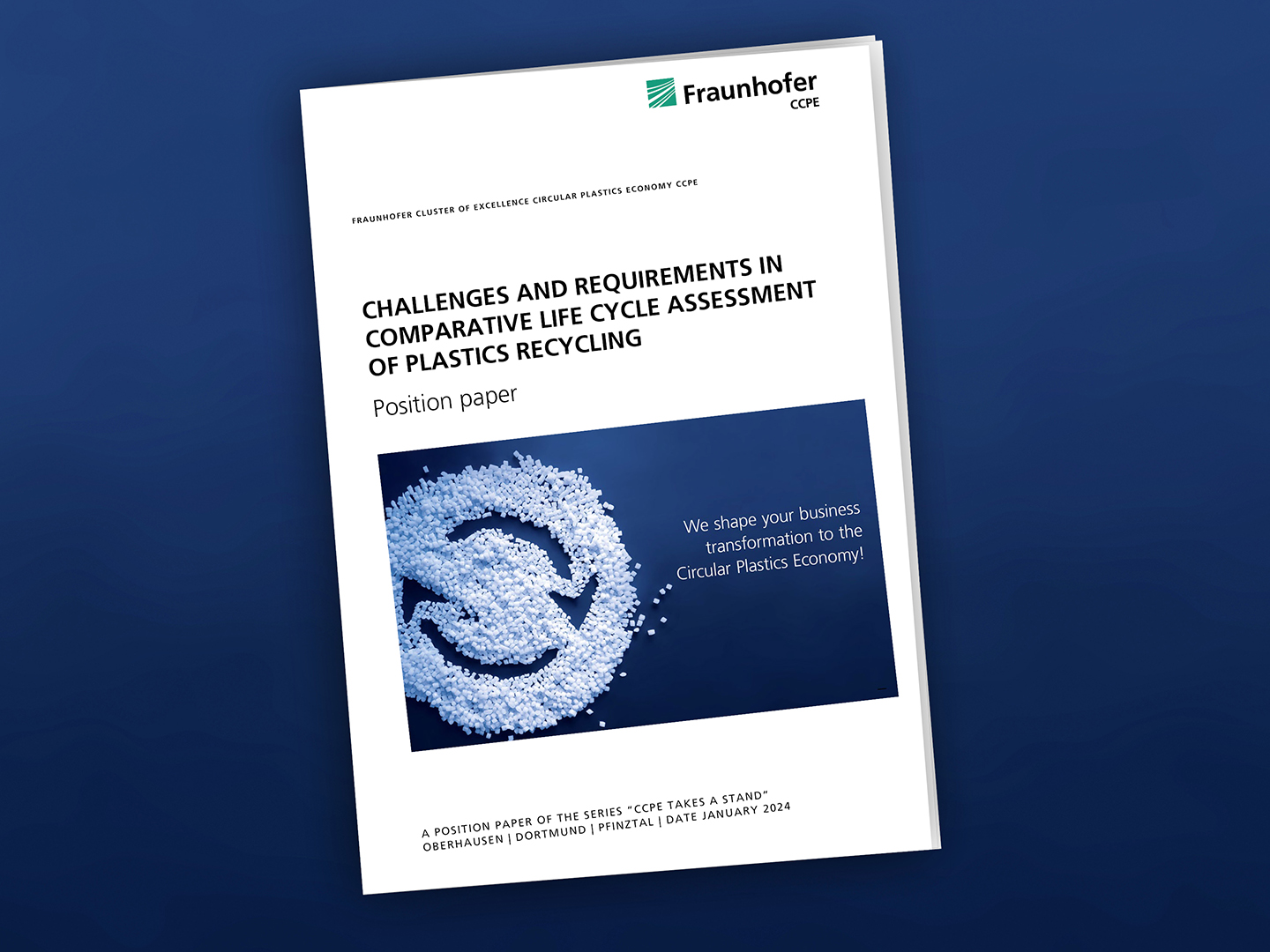Challenges and requirements in the life cycle assessment of recycled plastics
Currently relevant for many companies, but hardly anyone knows how to do it (correctly): the comparative ecological assessment of plastics recycling. Comparative life cycle assessment studies are often accused of "greenwashing" or "misleading communication". In a new position paper, Fraunhofer CCPE researchers therefore identify ten challenges and requirements for a transparent and comparable life cycle assessment of recycled plastics.

For the position paper, researchers from the Fraunhofer CCPE have drawn up ten challenges and requirements for the comparative assessment of recycling processes. Their aim is to open up the space for an open exchange between science, industry and politics in order to make decisions based on ecological comparisons comprehensible and reliable.
The results of life cycle assessment studies are usually used to support decision-making, whereby different questions and perspectives of recycling must be taken into account. By recycling plastic waste, waste is treated properly and new resources are obtained that can be used in a further product system. Plastics recycling is therefore always a multifunctional process that is involved in two product systems. In business practice and society, however, the importance of dealing with multifunctionality in the various perspectives of recycling and the associated challenges and influences on the result of a life cycle assessment are often not recognized. The new CCPE position paper and this article focus on the challenges and requirements of comparative LCAs for plastics recycling activities and thus on the distinction between the waste treatment and material provision perspectives.
Comparative ecological assessments of several products are usually challenging and often depend on various boundary conditions and assumptions. Especially for comparative statements, such as ecological savings through the use of recyclate compared to virgin plastic, the verification of consistency is a key requirement in the assessment. The use of results from inconsistent LCA studies can therefore be prone to misinterpretation.
Other important challenges are the handling of different technology routes and scales as well as the complexity of recycling routes of mixed collected waste. The latter often involve a variety of waste and products that are processed and generated by different companies. In addition, the balancing of different waste origins and co-collected contaminants is a challenge that directly influences the quality of the recyclates; post-industrial and post-consumer waste should be mentioned in this context. Furthermore, inadequate data sources, monitoring and collection systems as well as outdated or unavailable site-specific data make it difficult to make comparisons along the entire value chain.
At the methodological level, it is important to sharpen modeling approaches with regard to multifunctionality and system boundaries. The fair comparison of different recycling processes is a challenge, as mechanical and chemical recycling technologies provide resources for reuse at different stages of the value chain. The comparison of virgin and recycled materials is challenging in terms of functionality, as the production of virgin materials usually only has the function of providing the virgin material, while the recycling of plastics is always multifunctional. The correct handling of multifunctionality in recycling has been discussed since the early 1990s, but there is still no clear consensus.
Overall, there is a lack of methodological consensus on how to produce robust and comparable LCA results. The CCPE researchers are therefore primarily calling for clarification of the modeling of recycled plastics with regard to the question of multifunctionality in comparison to new plastics. At the data and technology level, a comparison of different plastics recycling technologies requires a harmonized quality of waste input and consideration of the substitutability of recycled plastics compared to virgin plastics. The comparison of different LCA studies is a particular challenge for plastics due to the different inputs and outputs. In addition, the provision of proxy and standard data for modeling complex recycling chains from mixed collection is essential to close existing data and modeling gaps.
We are in continuous contact with industry for our application-oriented research. Feel free to contact us on the subject of life cycle assessment!